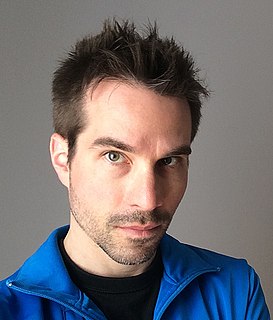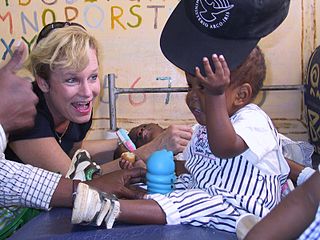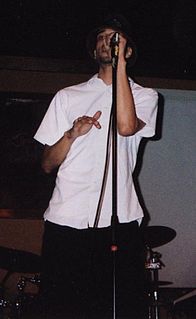A Quote by Ralph Fiennes
It's great to be on a set where there's time and there's focus and there's also a kind of adrenaline thrill on a set where people are saying: "We have to get this shot, we've have to go, we've got to move on!"
Related Quotes
I started to do stop-motion when I was a kid. You take a Super 8 and make some models, and move, click, move, click. All that. I love all forms of animation, but there is something unique and special to stop-motion: it's more real and the set is lit like a set. But I think it's also a kind of lonely and dark thing to want to do.
One thing that is very different technically is that you don't get a lot of coverage in television. Not like you do on a film. I know we don't have time for separate set-ups, so I will design a scene where I'm hiding multiple cameras within that set-up. That way, if I don't have time to do five set-ups, I can do four cameras in one set-up. It's a different kind of approach for that. For the most part, a lot of television, in a visual sense, lacks time for the atmosphere and putting you in a place.
Tennis is a great game, a great sport because you're out there by yourself, so you have to move on to the next point, next game, next set, whatever. It's the same thing in basketball. If you miss a shot, you move onto the next one. If you turn it over, you move onto the next play. That certainly helped me.
A new breed of ministers is rising up who will not wear out for the gospel. They are so caught up in passion, unity, and fullness that they run out and say, “World, here I come!” If they go into places where they get shot at, they are thrilled. If they do not get shot at, they are thrilled. If the place they go is filthy, they are thrilled. If it is clean, they are thrilled. Jesus is the joy set before them. He is their exceedingly great reward.
We're creating a TV show of Scrooge, starring Jamie Farr, with Buddy Hackett as Scrooge. We're shooting in this Victorian set for weeks, and Hackett is pissed all the time, angry that he's not the center of attention, and finally we get to the scene where we've gotta shoot him at the window, saying, "Go get my boots," or whatever. The set is stocked with Victorian extras and little children in Oliver kind of outfits, and the director says, "All right, Bud - just give it whatever you want." And Hackett goes off on a rant. Unbelievably obscene.
The whole visual language of the movie is developed way before we get to set. Especially when you're doing visual effects and you don't have a lot of money to mess around, which we didn't, you have to really preplan everything. Pretty much every shot in the film was figured out months before we got to set.
I definitely isolate, but I also always have people in front of me, and I have to be OK with that. I'm in a business where, on the set, you're around two hundred people every day, and if you're high on the call sheet, you sort of set the tone for the set. And you want people to feel appreciated, and you want to ask them how their kids are. You want to talk to people and invest in them and let them know that they're appreciated and heard. But then I do like to just kind of withdraw.
This is basically the last resort. I've been painted into a corner, and now I've sort of got to lay it all out in order for things to be straightened up. I've tried to move on with my life and my career for the last two years and do my own thing, and 'American Idol' and FOX, they've just been making it really tough for me to do that. So in order for me to get through all the red tape and just allow people to just get at my talent, I've got to set the record straight. And you can't set half the record straight; when you tell it, you've got to tell it all.




































